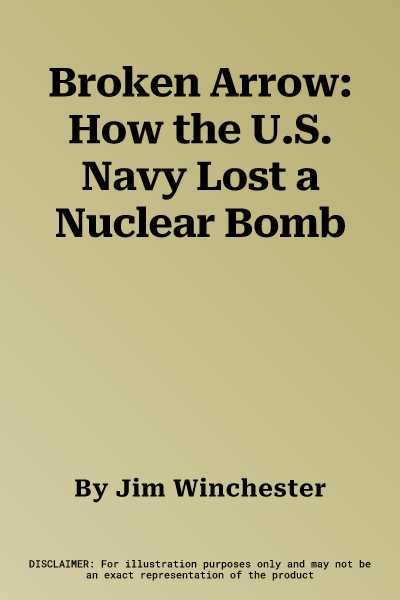The extraordinary story of the loss of a U.S. plane with a live
nuclear bomb on it during the Vietnam War in 1965, and the subsequent
cover-up.
On 5 December 1965, the giant American aircraft carrier Ticonderoga was
heading to Japan for rest and recreation for its 3,000 crew, following a
month on 'Yankee Station' launching missions against targets in
Vietnam.
Whilst fighting a real conflict and losing men in conventional warfare,
Tico's primary mission was Cold War nuclear combat with the Communist
bloc. The cruise from the Yankee Station to Japan was used to practice
procedures for Armageddon.
Douglas Webster was a young pilot from Ohio, newly married and with
seventeen combat missions under his belt. On that day in 1965 he
strapped into an A-4 Skyhawk bomber for a routine weapons loading drill
and simulated mission. After mishandling the maneuver, the plane and its
pilot sunk to the bottom of the South China sea, along with a live B43
one-megaton thermonuclear bomb.
A cover-up mission began. The crew was ordered to stay quiet, rumors
circulate of sabotage, a damaged weapon and a troublesome pilot who
needed 'disposing of'. The incident, a 'Broken Arrow' in the parlance of
the Pentagon, was kept under wraps until 25 years later. The details
that emerged caused a diplomatic incident, revealing that the U.S. had
violated agreements not to bring nuclear weapons into Japan. Family
members and the public only learnt the truth when researchers discovered
archived documents that disclosed the true location of the carrier,
hundreds of miles closer to land than admitted.
Broken Arrow tells the story of Ticonderoga's sailors and airmen, the
dangers of combat missions and shipboard life, and the accident that
threatened to wipe her off the map and blow US-Japanese relations apart.
For the first time, through previously classified documents, never
before published photos of the accident aircraft and the recollections
of those who were there, the story of carrier aviation's only 'Broken
Arrow' is told in full.

